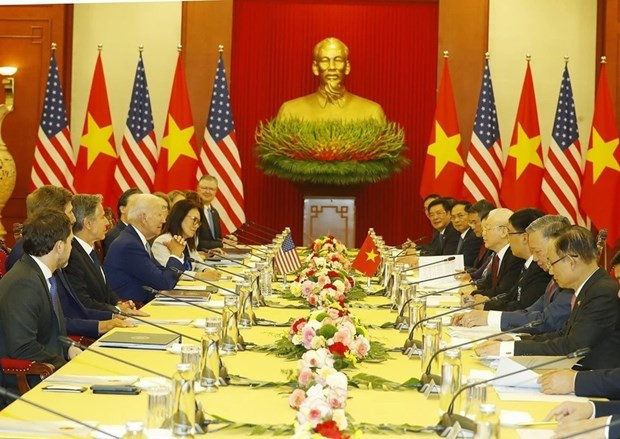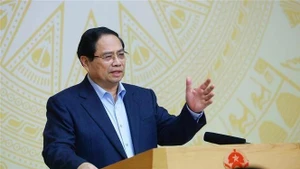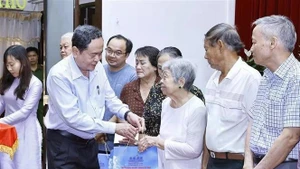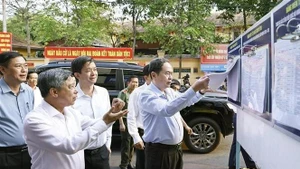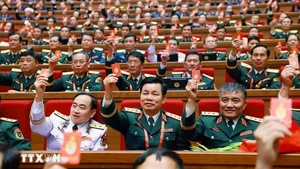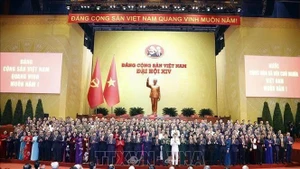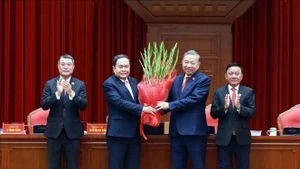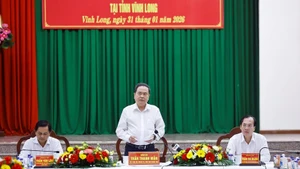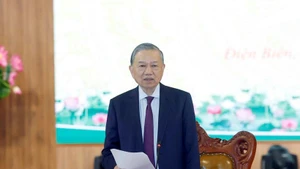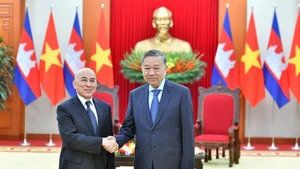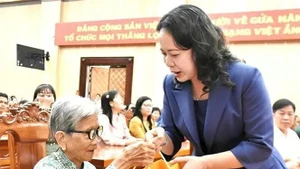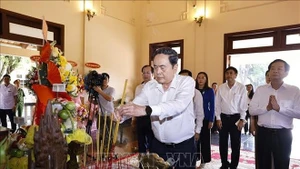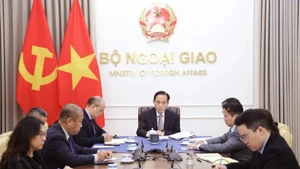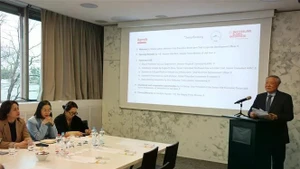The most outstanding progress with an inclusive significance is the elevation of bilateral ties to a comprehensive strategic partnership for peace, cooperation and sustainable development, the diplomat told Vietnam News Agency (VNA) correspondents in Washington D.C, stressing that the upgrading has created a new momentum and an open corridor for the promotion of cooperation between the two countries in the future.
According to Ambassador Dung, this year saw bustling delegation exchanges and high-level meetings between the two countries, including the talks between General Secretary of the Communist Party of Vietnam Nguyen Phu Trong and US President Joe Biden during the latter’s visit to Vietnam.
In the first 10 months of this year, Vietnam’s exports to the US reached 94.5 billion USD, accounting for nearly 30% of the country’s export revenue, making the US the largest export market of Vietnam.
Despite the downturn in the global trade, two-way trade between the two countries hit over 102 billion USD in the January-October period, he noted, adding that Vietnam has remained among the 10 largest trading partner of the US, with two-way trade increasing more than four folds in 10 years.
Regarding investment, the US ranked 11th among foreign investors in Vietnam with total direct investment of 11.8 billion USD, and most major enterprises of the North American country is now present in the Southeast Asian nation. This year also witnessed a trend of investment from Vietnam to the US, including Vietnamese automaker VinFast’s launching of an electric vehicle manufacturing factory in the US’s North Carolina State.
Meanwhile, defence-security collaboration has been promoted with the success of a defence policy dialogue, while tourism cooperation has been recovered to the pre-pandemic level with about 700,000 US tourists visiting Vietnam so far this year.
At the same time, bilateral culture-education partnership has been fruitful, with more than 25,000 Vietnamese students studying in the US, ranking first among ASEAN countries.
The two sides have also enjoyed positive cooperation results in health care, epidemic prevention and control, environmental protection, and climate change response, along with close coordination at regional and international forums, said Ambassador Dung.
The diplomat held that in the time to come, the two sides should work harder together in implementing their comprehensive partnership, focusing on 10 major agreed pillars.
Particularly, the two countries need to popularise the spirit and content of the agreements between the two countries to ministries, sectors and localities as well as businesses and people of both sides for implementing suitable programmes and activities, he said.
Ambassador Dung said he hopes the two sides will design a strong coordination mechanism to regularly review and speed up the progress of the agreements, and seek solutions to problems and obstacles.
